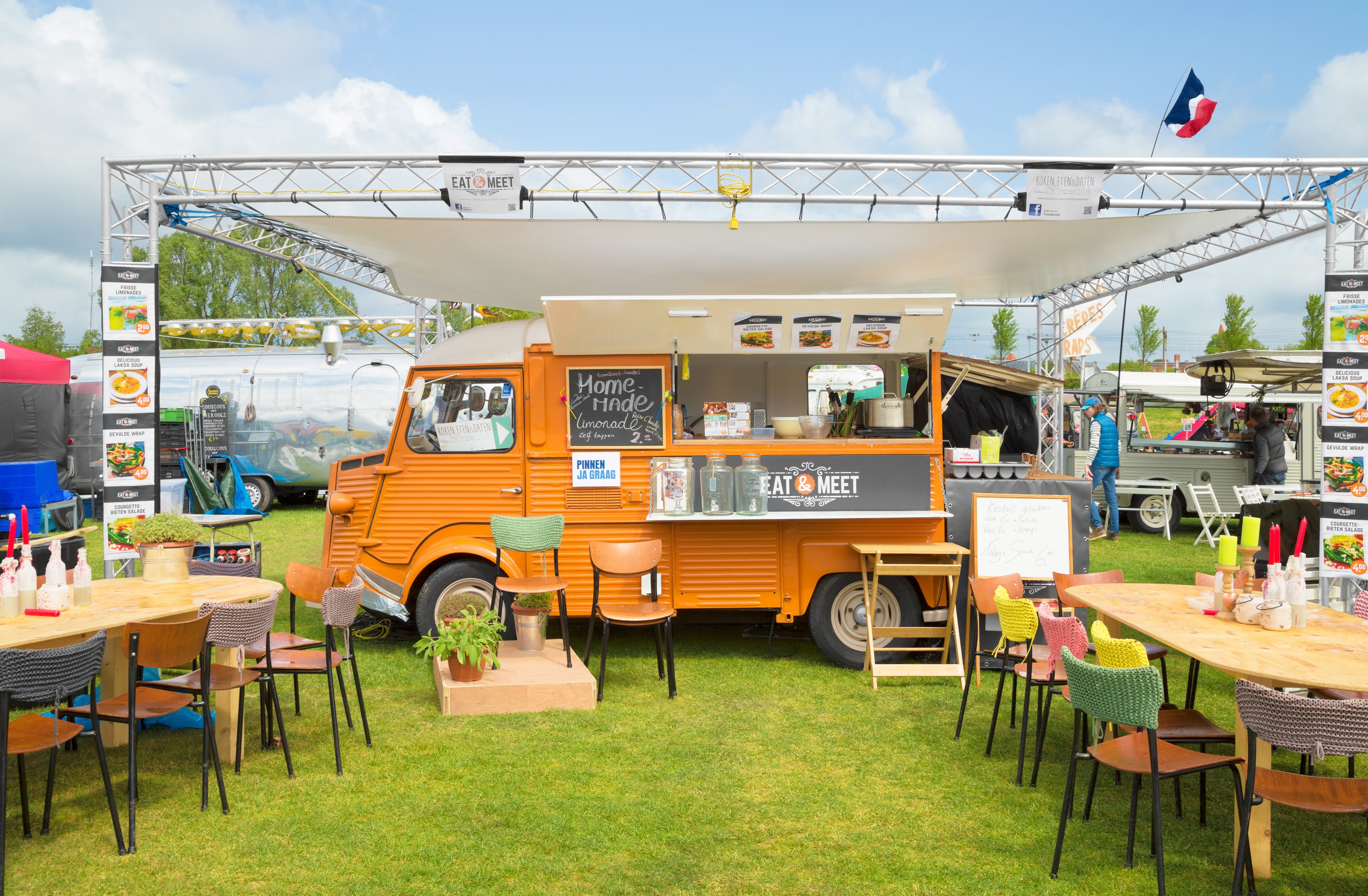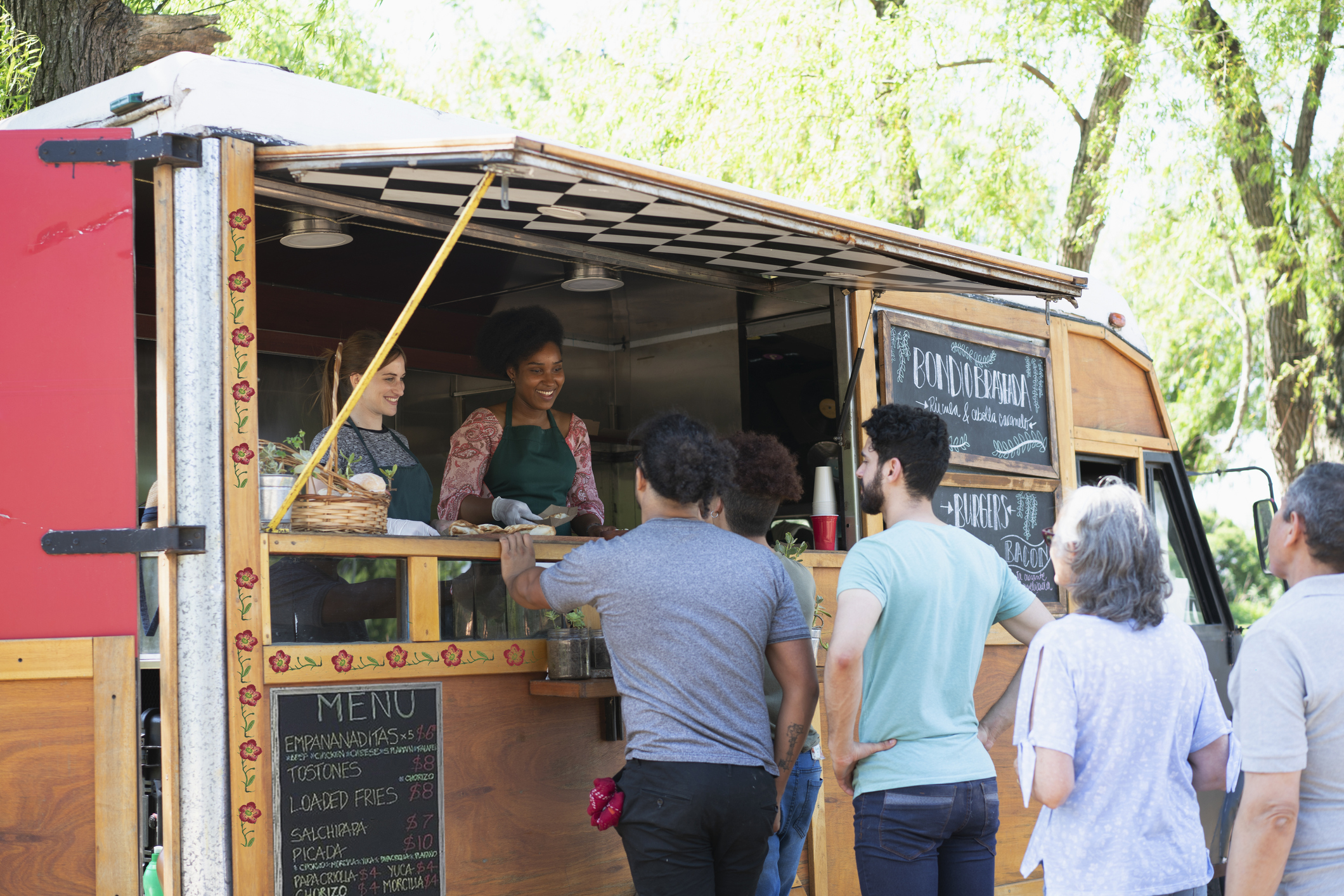Food Truck Vs Restaurant: Which Is The Better Option?
If you're considering starting a food business, you may be wondering whether to go the restaurant or food truck route. Both options have their advantages and challenges, and the decision ultimately depends on what type of customer base you want to cater to, what level of investment you're comfortable with, and how mobile you want your business to be. In this guide, we'll explore the pros and cons of each option to help you make an informed decision.
The Benefits of a Food Truck vs a Restaurant.
When starting a food business, there are many benefits to choosing a food truck over a traditional restaurant. First and foremost, food trucks are mobile, which means you can take your business anywhere - from festivals and fairs to office parks and street corners. This gives you the flexibility to target a wider range of customers in various locations. Additionally, food trucks tend to have lower startup costs and overhead expenses compared to brick-and-mortar restaurants, making them an attractive option for entrepreneurs on a budget. Finally, food trucks often have a more casual and laid-back atmosphere that can attract younger crowds who are looking for unique dining experiences.
The Pros and Cons of Owning a Food Truck.
There are many advantages and disadvantages to starting a food truck business. One of the biggest advantages is mobility, as you can bring your business directly to your customers. This also means that you may have lower overhead costs, since you won’t need to rent or purchase dedicated restaurant space. Food trucks can also be a great way to test out new recipes or menu items without committing to a full restaurant build-out. On the other hand, food truck owners must deal with unique challenges like finding and securing ideal locations, navigating local licensing and permitting requirements, and maintaining and troubleshooting any issues with their equipment or vehicle.
It’s important to carefully consider all of these factors before deciding whether starting a food truck business is right for you. Both food trucks and restaurants have their advantages and disadvantages, and the decision of which is the better option depends on various factors, such as the type of food, location, target audience, and budget.
Here are some factors to consider when deciding between a food truck and a restaurant:
Cost: Setting up a restaurant requires a larger investment in terms of rent, equipment, staff, and marketing. In contrast, food trucks are relatively less expensive to start and run.
Mobility: Food trucks are more mobile than restaurants and can move to different locations depending on demand, events, or seasons. This flexibility allows food truck owners to reach new customers and maximize their profits.
Menu and cuisine: Food trucks are ideal for street food, fast food, or niche cuisine that can be prepared quickly and served on the go. In contrast, restaurants can offer a wider variety of dishes and can accommodate customers with different dietary preferences.
Competition: In crowded areas, competition among restaurants can be high, and it may be difficult to stand out. Food trucks, on the other hand, can offer a unique experience and attract customers who are looking for something different.
Regulations: Food trucks must comply with various health and safety regulations and may face restrictions on where they can park and operate. Restaurants also have to follow health and safety regulations, but they usually have a fixed location and can provide a more controlled environment.
The Pros and Cons of Opening a Restaurant.
Opening a restaurant can be a dream come true for many aspiring chefs and entrepreneurs. One of the biggest advantages of opening a restaurant is having a permanent location that customers can easily find and return to. This can also lead to increased brand recognition and customer loyalty over time.
Additionally, restaurants have more space for seating and capacity, which means you can serve larger groups of people at once. However, starting a restaurant typically requires a larger upfront investment in terms of rent, equipment, staffing, and inventory. Restaurants also often come with higher overhead costs like utilities, insurance, and marketing expenses.
Managing inventory and waste can also be more challenging in a restaurant setting compared to a food truck business where you can adjust your menu offerings based on popularity or demand. It’s crucial to weigh these pros and cons carefully before deciding which business model is best suited for your skills, goals, and budget.
How to Decide Between a Food Truck and a Restaurant.
Choosing between a food truck and a restaurant requires careful consideration of several factors. The first thing to consider is your budget. Food trucks generally require less startup capital compared to opening a restaurant, as you don’t have to invest in rent or large amounts of equipment. Another factor to keep in mind is the type of cuisine you want to offer and the target market for your food.
Food trucks are more mobile and can cater to different locations, while restaurants have permanent location that attracts customers who live or work nearby. Additionally, if you value flexibility and want the freedom to experiment with your menu offerings or location, a food truck might be the better choice for you.
However, owning a restaurant can provide greater stability over time and allow for expansion opportunities like franchising or opening additional locations. Ultimately, it’s important to choose the business model that aligns with your goals and interests.
When it comes to deciding between a food truck and a restaurant, it’s important to evaluate the pros and cons of each option. One advantage of food trucks is their mobility- you can take your business to different locations and cater at events where many people are gathered. This allows you to expand your reach and target new markets. On the other hand, restaurants have a permanent location, which can help build a loyal customer base over time as people in the area come to rely on your establishment for their dining needs.
Social Media Engagement
In today's digital age, social media presence is crucial for building brand awareness and growing your food truck business. Platforms like Instagram, Facebook, and Twitter offer a direct line of communication with potential customers, allowing you to showcase your menu, share updates on your location, and engage with followers in real-time.
By posting mouth-watering photos of your dishes, promoting special deals or events, and responding to comments and messages promptly, you can create a loyal following and attract new customers to your food truck. Don't underestimate the power of social media in driving foot traffic and increasing sales for your mobile eatery. Make sure to prioritize social media brand awareness as part of your marketing strategy to maximize the success of your food truck business.
Factors to Consider When Choosing Your Business Model.
Choosing between a food truck and a restaurant depends on several factors that affect your business's success. Firstly, think about your startup capital and long-term financial goals. Food trucks require a less initial investment but may limit expansion opportunities compared to restaurants. Secondly, consider the type of cuisine you want to offer and the target market for your food. Food trucks are more mobile and can reach different locations, while restaurants have more fixed customer bases.
Finally, if you value flexibility and experimentation with your menu offerings or location, then a food truck may be a better option for you than owning a restaurant. Ultimately, aligning your business model with your goals and interests will determine which path is best for you. Additionally, you should also consider the regulations and permits required for operating a food truck or restaurant in your area.
Food trucks may have more restrictions on where they can park and operate, while restaurants may require more permits and inspections. You should also think about the level of competition in your area for both food trucks and restaurants. If there are already many established restaurants in your area, it may be harder
Wrapping Up
Ultimately, the decision between a food truck and a restaurant depends on your goals, budget, and target audience. If you want to start small, test a new concept, or cater to a specific niche, a food truck can be a better option. If you want to provide a full-service dining experience, have a wider menu, and attract a broader audience, a restaurant may be the way to go. It depends on many factors, including your startup capital, long-term financial goals, the target market for your food, the type of cuisine you want to offer, flexibility and experimentation with menu offerings or location. Regulations and permits required for both models should also be taken into account, as well as the level of competition in your area. It's important to align your business model with your goals and interests.
Checkout ATU Food Truck -provides complete details and information about the food truck micro-credential. You can rely on us to offer you the best experiences with our services.



-1.png)
